 Junayd, the Sufi philosopher, had a group of 20 disciples, many of whom desired to assume leadership after his death. There was one disciple whom Junayd favored above all the others. The others, moved to jealousy, asked why this was so. "He is superior to you in manners and understanding," he told them. “Let me show you, so that you may also realize it.” So Junayd gathered his disciples, including his favored one, and instructed, “Bring a bird, a living bird.” All left his presence, and returned with a living bird. He then said, “Now, go to a place where no one can see you, kill the bird, and return to me with it.” They did so. As instructed, 19 of them came back and presented their master with dead birds. The 20th, his favored one, returned, and much to the surprise of the others, presented their master with a live bird. Junayd inquired of him, “I gave you explicit directions. Why did you not do as I asked?” And the disciple replied, “I couldn’t find a place where no one could see me.” Re-told from various source by R' Mark Novak
1 Comment
Told by Renée and Mark based on a written version by Howard Schwartz from a tale by Reb Nachman of Bratzlav  A man had been wandering about in a forest for several days, not knowing which was the right way out. Suddenly he saw a man approaching him. His heart leaped with joy. "Now I shall certainly find out which is the right way," he thought to himself. When they neared each other he asked the man, "Brother, tell me which is the right way. I have been wandering about lost in this forest for several days." Said the other to him, "Brother I do not know the way out either. I too have been wandering about here for many, many days. This I can tell you: do not take the way that I have been taking, for that will lead you astray. And now, let us look for a new way out together." **** My Rebbe, Zalman Schacter-Shalomi of blessed memory, always reminded us that "the only way to get it together - is together!" A parable from Rabbi Hayyim of Zans, 19th C. Found in Shai Agnon's Days of Awe One day the wise king Solomon, decided to humble his most trusted ministers, Benaiah ben Yehoyada. He said to him, “Benaiah, there is a certain ring that I want you to bring to me. I wish to wear it for Sukkot, which gives you six months to find it.”
“If it exists anywhere on earth, your majesty,” replied Benaiah, “I will find it and bring it to you, but what makes the ring so special?” “It has magic powers,” answered the king. “It can make a happy man sad and a sad man happy.” Solomon knew that no such ring existed in the world, but he wished to give his minister a little taste of humility. Spring passed and then summer and still Benaiah had no idea where he could find the ring. On the night before Sukkot, he decided to take a walk in one of the poorest quarters of Jerusalem. He passed by a merchant who had begun to set out the day’s wares on a shabby carpet. There were rings and earrings and bracelets. “Have you by any chance heard of a magic ring that makes a happy man sad and a sad man happy?” The merchant had heard of no such ring. But then, as if by magic, the merchant’s father appeared. With an old gnarled finger he beckoned to Benaiah. As he watched, the grandfather took a plain gold ring from the display case and engraved something on it. When Benaiah read the words on the ring, his face broke out in a wide smile. That night the entire city welcomed in the holiday of Sukkot with great festivity. “Well, my friend,” said Solomon, “have you found what I sent you after?” All the ministers laughed and Solomon himself smiled. To everyone’s surprise, Benaiah held up a small gold ring and declared, “Here it is, your majesty!” As soon as Solomon read the inscription, the smile vanished from his face. The jeweler had written three Hebrew letters on the gold band: Gimel, Zayin, Yud, ג׳ז׳י, which began the words: “Gam zeh ya’avor” - גם זה יעבור- “This too shall pass.” ******** Re-crafted from various sources by Mark Novak. This tale also appears in Sufi literature. Apparently it is an ancient Jewish/Persian saying.  On a warm afternoon, on the second floor of a splendid palace that overlooked the market place of the city, sat a king and his minister. While the king was eating some puffed rice on honey, he looked over his land with satisfaction. What a prosperous city he ruled, what a magnificent city As he was daydreaming, a little drop of honey dripped from his puffed rice onto the window ledge. The minister was about to call a servant to wipe up the honey, when the king waved a hand to stop him. “Don’t bother, it’s only a little drop of honey, it’s not our problem.” The minister watched the drop of honey slowly trickle down the window ledge and land on the street below. Soon, a buzzing fly landed on the sweet drop of honey. A nearby lizard shot out its long tongue and caught the fly. The lizard was taken by surprise when a cat leapt on it. The cat was pounced on by its worst enemy the dog that had broken free from its chain. Meeowing and barking erupted from the street below the King and his minister. The minister was about to call a servant to go and deal with the brawling cat and dog when the king said, ”Relax, the cat and dog belong to the market people. We shouldn’t interfere. It’s not our problem.” The cat’s owner was horrified to see her cat being attacked by the big bully of a dog and started whacking the dog with her broom. The dog’s owner was horrified to see her dog being attacked by the big bully of a cat and started whacking the cat with her broom. Soon, people started coming out from their stalls and houses to see what all the screaming and shouting was about. Seeing their friend’s cat being attacked, they joined in berating the dog and its owner. Others, seeing their friend’s dog being attacked by the cat, joined in berating the cat and its owner. The shouting soon escalated, until a fight broke out in the street. The worried minister turned to the King who raised his hand saying, “Not our problem. Here, have some more puffed rice and honey.” The king and his adviser ate, as they watched the fray below. Someone called for the police, who arrived and attempted to break up the fight, but the people’s anger had grown into fury, and they started attacking the policemen. The fight rapidly broke out into a full scale riot. The king eyed the minister and said, “I know what you are thinking, but the army will handle it. Besides, this is not out problem.” In what seemed like a blink of an eye, the riot led to looting and destruction all over the city. Buildings were set alight and by nightfall, the magnificent city was reduced to a pile of smoking ashes. The king and his minister stood spellbound, rooted to the spot where they had been watching all day. Their mouths were hanging open in horror. “Hmmm…,” murmurred the king quietly, “maybe the little drop of honey WAS our problem.” Story re-crafted by Mark Novak
This is credited as a Thai/Burmese folktale, but my suspicion is that it is based on a folktale. Let me know if you know, you know? You can find it and many more stories at Storywise 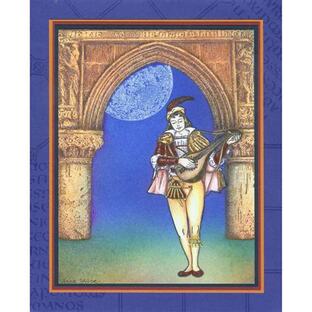 Rabbi Mendel Futerfas spent many years in a Siberian gulag. One of his fellow prisoners was a tightrope walker. The rabbi asked the tightrope walker, "What is the secret to your art? What does one need to master? Balance? Stamina? Concentration?" The tightrope walker's answer surprised him "The secret is always keeping your destination in focus. You have to keep your eyes on the other end of the rope, and how you get there is a straight line, never wavering. But do you know what the hardest part is?" "When you get to the middle?" the rabbi ventured. "No," said the tightrope walker. "It's when you make the turn. Because for a fraction if a second, you lose sight of your destination. When you don't have sight of your destination, that is when you are most likely to fall." 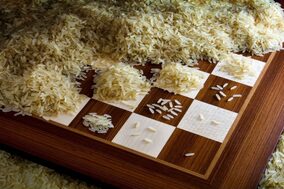 There was once a king in India who was a big chess enthusiast and had the habit of challenging wise visitors to a game of chess. One day a traveling sage was challenged by the king. The sage having played this game all his life all the time with people all over the world gladly accepted the Kings challenge To motivate his opponent the king offered any reward that the sage could name. The sage modestly asked just for a few grains of rice in the following manner: the king was to put a single grain of rice on the first chess square and double it on every consequent one. The king accepted the sage’s request. Having lost the game and being a man of his word the king ordered a bag of rice to be brought to the chessboard. Then he started placing rice grains according to the arrangement: 1 grain on the first square, 2 on the second, 4 on the third, 8 on the fourth and so on. Following the exponential growth of the rice payment, the king quickly realized that he was unable to fulfill his promise because on the twentieth square the king would have had to put 1,000,000 grains of rice. On the fortieth square, the king would have had to put 1,000,000,000 grains of rice. And, finally, on the sixty-fourth square, the king would have had to put more than 18,000,000,000,000,000,000 grains of rice which is equal to about 210 billion tons and is allegedly sufficient to cover the whole territory of India with a meter thick layer of rice. It was at that point that the sage told the king that he doesn’t have to pay the debt immediately but can do so over time. And so the sage became the wealthiest person in the world. *********************************************************************** This story resonates with me during this time in regard to not only how Covid-19 exponentially grows, but also how kindess and generosity of spirit do as well. Read this article in The Washington Post. I was unable to find a source for this story, although all signs point to HIndu scriptures. If you have a source please let me know. Payasam is an Indian dessert consisting of rice, boiled in milk or coconut milk, flavoured with cardamom, and often containing groundnuts. 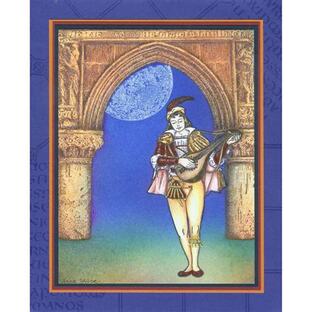 An old Cherokee is teaching his grandson about life. He said, "My son, a fight is going on inside of me." "It is a terrible fight and it is between two wolves. One is evil - he is anger, envy, sorrow, regret, greed, arrogance, self-pity, guilt, resentment, inferiority, lies, false pride, superiority, and ego." He continued, "The other is good - he is joy, peace, love, hope, serenity, humility, kindness, benevolence, empathy, generosity, truth, compassion, and faith. The same fight is going on inside you - and inside every other person, too." The grandson thought about it for a minute and then asked his grandfather, "Which wolf will win?" The old Cherokee simply replied, "The one you feed."  A rebbe was asked to come teach in a distant village. Having no rabbi of their own, the community was very excited and each person prepared for the rabbi's visit by pondering what question he or she might ask him. Upon his arrival the community welcomed the rabbe warmly, first with a simple meal and then escorting him to his room where he could rest after his long journey. Refreshed from his nap, he was then taken to the large community room where people had gathered excitedly to ask their questions. The room buzzed with anticipation. Upon entering the rabbe began to walk around the room, making eye contact with each person present. He then began to sing a sweet, contemplative Hasidic melody. "Yai dai dai...yai dai dai...yai dai dai dum." As he sang, he walked slowly, purposefully, continuing to make eye contact, with one person, and then another, until one person, and then another, joined him in the niggun... "Yai dai dai...yai dai dai...yai dai dai dum..." ...until everyone was singing with him, sweetly and contemplatively. The rebbe began to sing a little bit faster, and the people followed his lead. As he picked up the tempo, he picked up his feet, and started to dance, arms spread wide, his entire body bouncing in step with the melody. The people were caught up unawares, and in the joy of the moment, found themselves dancing and singing alone/together. Then without notice, the rabbe's dance gradually began to slow, and with it the song as well, until it reached a gentle end. Some people smiled, while others wiped tears from their cheeks. The rebbe cast his eyes about the room, and gently said, “I trust that I have answered all of your questions.” (Origin unknown, retold by R' Mark Novak) 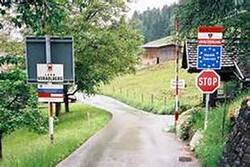 There was once a Swiss guard who worked at the border of Austria. He had worked there for many years and took a great deal of pride in his work. One morning an Austrian man arrived at the border, riding a bicycle. On the front of the bike was a basket filled with sand. The guard eyed the man suspiciously, and suspecting that the Austrian might be a smuggler, brought out a special comb he kept for just a purpose, and began to sift through the sand in the basket. He found nothing, only sand, and waved the man through the gate. The same thing happened the next month, as the Austrian arrived on a bicycle with the basket filled with sand. The border guard went through the same process, at first eyeing the Austrian with suspicion, then sifting through the sand with his special comb, and until, finding nothing, allowing the Austrian to again cross the border. The scene repeated itself month after month, year after year. During this time the border guard engaged the Austrian in small talk - learning his name (it was Yosef) learning about his family (he was married with a wife, who was a school teacher, and had 2 children), and of course his reason for crossing the border (to visit a favorite aunt and uncle). Each month they exchanged pleasantries, and as time passed the border guard still remained suspicious, and though he never found anything, he kept on looking... month after month...for 30 years! Finally, one day, the Swiss guard said to the Austrian man, "I must ask you a question that has been on my mind many years. This is my last day of work - I am retiring. After all these years, I still suspect you have been a smuggler, and it is driving me near mad. Now I ask you - I must know - are you indeed a smuggler?" The Austrian man hesitated, and the Swiss guard reassured him. "Do not worry - I give you my word of honor that I will not arrest you. But for my own peace of mind, I must know." "Very well," said the Austrian. "Then I will tell you - I am indeed a smuggler." "Ha ha," laughed the guard, relieved at last to know that his suspicions had not been unfounded. "I knew it!" He hesitated for a moment and then continued, "But each month I looked through your basket and found nothing but sand. Tell me, please, what have you been smuggling?" And with eyes smiling, the Austrian replied, "Bicycles." |
Online Cohort #12
with Mark & Renée January 3 and 10 Registration and info here Discover Yourself! #7 with Shulamit January 14 and 21 Registration and Info here AuthorMark Novak is co-founder of The MultiFaith Storytelling Institute Archives
July 2021
Categories
All
|


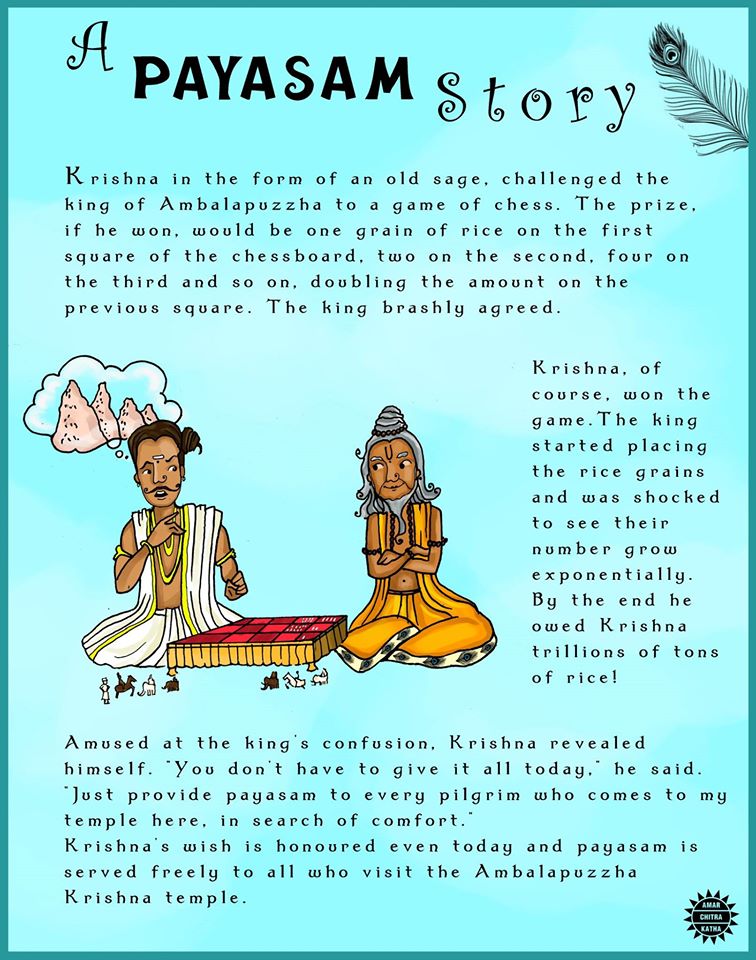
 RSS Feed
RSS Feed
